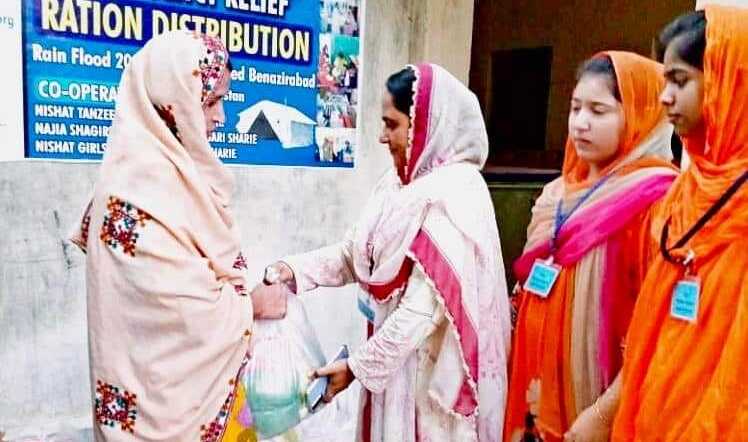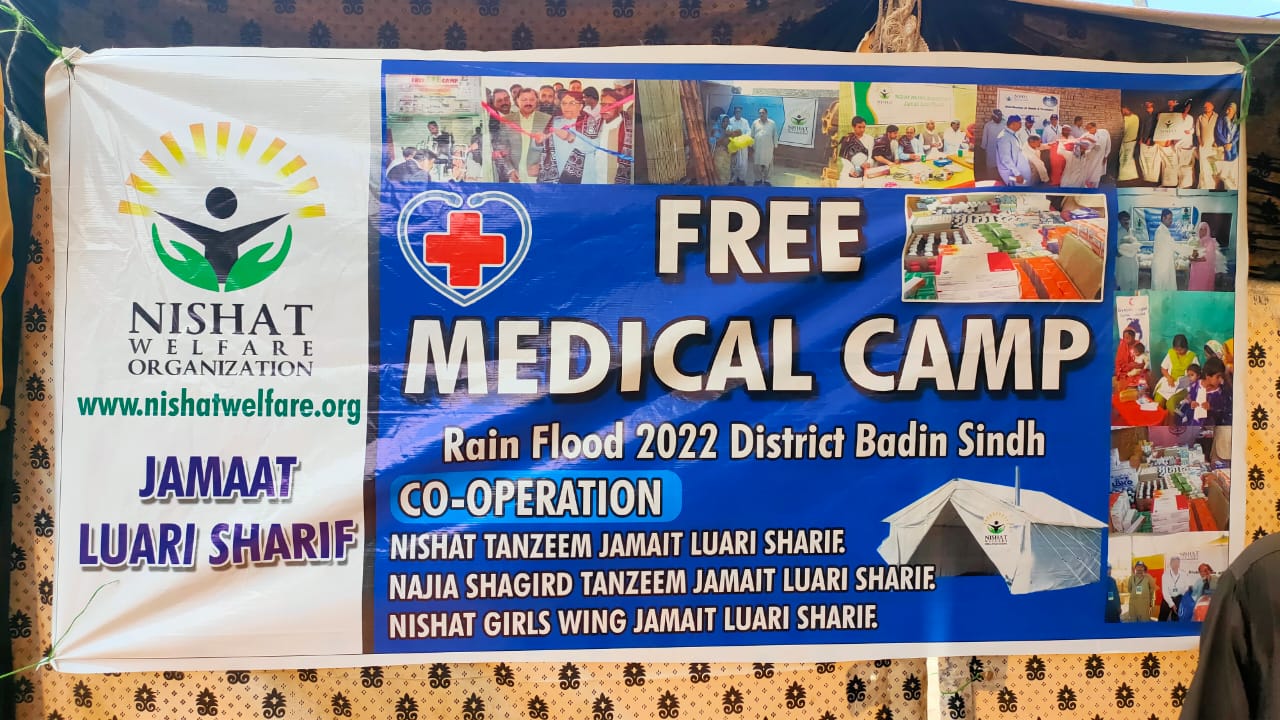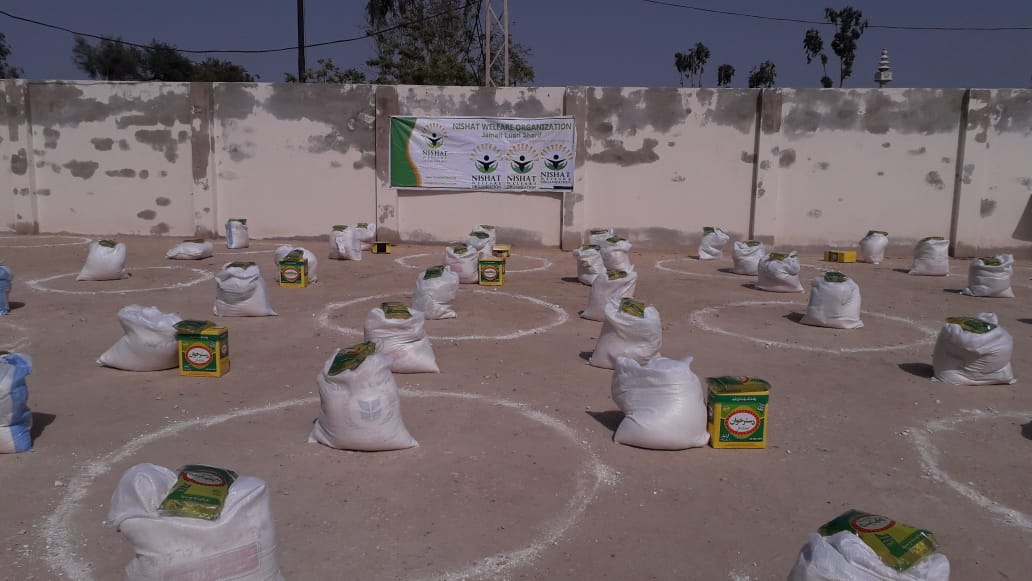Stopping violence against Women and Girls
Stopping it through Strategic use of Information and Communication Technologies (ICTs)
Introduction to NWO
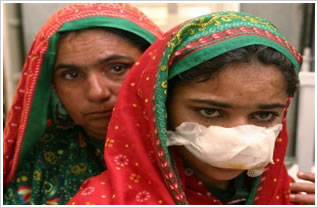
The Nishat Welfare Organization is a non-political, non-governmental organization working purely on non-profit basis. It focuses on quality education, health, community development, protection and awareness of human rights.
NWO envisions a dynamic civil society that is fluent in all essential resources for a better & more prosperous life in which people do not have to compromise for better livelihood.
NWO has the mission to utilize the potential of a community for sustainable development by emphasizing education to equip people with high moral values & confidence, through reachable & affordable first class health care services and by overcoming the causes of poverty and injustice.
NWO has the following Aims & Objectives:
- To address social, cultural and economic problems of the communities to contribute towards national development.
- To facilitate in provision of basic civic amenities, such as micro-financing, education, health, environment, agriculture, communication, employment, water supply and sanitation, etc.
- To alleviate poverty with emphasis on uplift of socio-economic conditions of women, children and the helpless. Also, providing legal support to them in every walk of life.
- To strengthen and enhance the capacity and efficiency of the existing institutions (public & private) by developing a sense of self-help and collaborate with them to improve the quality of life in general.
Abstract
To establish a strong platform for women's right activists who will enforce strategic usage of information and communication technologies (ICTs) to protect general women and girls from violence against women's rights in their locality. The platform will provide opportunity for women's right activists, organizations and groups (local, regional, and international) to raise voice collectively to enforce governments (of especially low income and developing countries like Pakistan) to take effective steps for the protection of women's and girls' rights.
Background
Women in Pakistan live in a world, which is structured by strict religious, family and tribal customs. They are subjected to discrimination and violence on a daily basis. They are facing various forms of violence, discrimination and inequality in almost every aspect of life. These women live in an atmosphere of fear, and their lives are guaranteed in exchange for obedience to social norms and traditions.
In many areas, like in Khaibar Pakhtoonkhwa, Balochistan, rural Sindh and rural Punjab, women are not even considered human beings. For instance, in rural areas, where traditional customs are followed, girls and women continue to be traded to settle debts or conflicts.
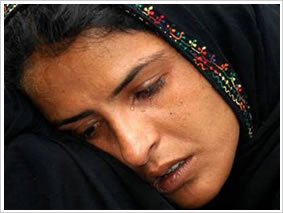 Pakistani women are also victims of sexual assault and sexual harassment. Unfortunately these women are forced to compromise with the rapist because in the Pakistan Penal Code (PPC) rape is a non compoundable offence and Judges and local police compel the victim to compromise for a small amount of money due to their poverty, without giving the rapist a sentence. Similarly, law enforcement agencies and police are always reluctant to take actions against the powerful tribes who follow different kinds of inhuman traditions in order to dehumanize women such as honor killing, blood money (in which a woman is paid as compensation for murder), bride buying, forced marriages, etc. Tribal leaders run tribal councils which are of main supporter and promoter of honor killings. Women who attempt to report abuse encounter serious obstacles. Police tend to respond to such reports by trying to reconcile with the concerned parties rather than filing charges and arresting the perpetrators. Further compounding the problem,
the doctors who perform examinations are likely to be skeptical to women's claim of abuse.
Pakistani women are also victims of sexual assault and sexual harassment. Unfortunately these women are forced to compromise with the rapist because in the Pakistan Penal Code (PPC) rape is a non compoundable offence and Judges and local police compel the victim to compromise for a small amount of money due to their poverty, without giving the rapist a sentence. Similarly, law enforcement agencies and police are always reluctant to take actions against the powerful tribes who follow different kinds of inhuman traditions in order to dehumanize women such as honor killing, blood money (in which a woman is paid as compensation for murder), bride buying, forced marriages, etc. Tribal leaders run tribal councils which are of main supporter and promoter of honor killings. Women who attempt to report abuse encounter serious obstacles. Police tend to respond to such reports by trying to reconcile with the concerned parties rather than filing charges and arresting the perpetrators. Further compounding the problem,
the doctors who perform examinations are likely to be skeptical to women's claim of abuse.
Courts, in Pakistan, either choose reflecting the existing broadly accepted social norms and values in their decision or they can use the law as an instrument of change. There are many examples concerning the biased attitude of judiciary. According to Amnesty International (1999), the Lahore high court of Punjab province reduced the life imprisonment of two men who killed their own sister because of marrying a man of her choice. The court said that in Pakistani society nobody forgives a person who marries his sister or daughter without the consent of parents or near relatives.
The BBC reports that in Pakistan the Progressive Women's Association say that "three-hundred Pakistani women are burned to death each year by their husband's families" and that bride-burning incidents are sometimes disguised as accidents such as an 'exploding stove'.
Several types of violence occur in Pakistan on regular basis. News papers are full of such reports.
- Honour Killings: In recent years, Pakistan has been criticized because of the dramatic rise in the incidence of honor killings in the country. In August 2008 murder of five women who were killed by tribesman of the Umrani Tribe of Balochistan. The five women, three teens and two middle-aged women, were buried alive after they refused the tribal leader's marriage arrangements and wanted to marry men of their own choosing.
- Karo-Kari: Karo-kari is part of cultural tradition in Pakistan and is a compound word literally meaning "black male" (Karo) and "black female (Kari), in metaphoric terms for adulterer and adulteress. Once labeled as a Kari, male family members get the self-authorized justification to kill her and the co-accused Karo to restore family honor, although in the majority of cases the victim is female, while the murderers are male. Over 4,300 people have been murdered by this practice in Pakistan over the last 4 years. Of the victims, almost 2,700 were women and just over 1,300 were men,; 3,451 cases came before the courts. The highest rate of the practice of Karo-kari were in Punjab, followed by the Sindh province. Lesser number of cases have also been reported in Khaibar Pakhtoonkhwa and in Balochistan.
- Bride burning: A category of dowry death, bride-burning occurs when a young woman is murdered by her husband or his family for her family's refusal to pay additional dowry. The wife is typically doused with kerosene, gasoline, or other flammable liquid, and set alight, leading to death by fire.
- Acid throwing: Perpetrators of these attacks throw acid at their victims (usually at their faces), burning them, and damaging skin tissues, often exposing and sometimes dissolving the bones. The consequences of these attacks include blindness and permanent scarring of the face and body.
- Men throw acids on women because she did not bring sufficient amount of dowry. Or, the men who had proposed a woman for marriage and on woman's decline, they as revenge, throw acid on the woman's face. Every year, almost 400 women all over the country become the victim of acid attacks mainly by their husbands and family members and sadly, in past ten years, more than 1500 cases of acid attacks were registered in police stations and courts. It should be remembered that many cases go unreported as well.
- Dowry system: Dowry is an amount of money or valuable things (real-estate property, gold) given by the bride`s family to the groom at the time of their marriage. Unable to meet expectations of groom's family, some brides are forced to commit suicide and some are burnt alive after being covered with kerosene oil.
Lake of education and economic opportunities for women restrict the potential of women to think about their due rights guaranteed by international agreements and declarations under UN and other international bodies. Furthermore, poverty and religious extremism are also roadblocks in the way of Pakistani women becoming progressive and independent. Because of lake of trust in Pakistani law enforcement agencies, women of the country need a strong, affective and protective platform where they can speak about victimization and come, as collectively, to confront cruel tortures of male dominated societies; like Pakistan.
The purpose of this project is to establish such platform to help women protect their rights through strategic use of ICTs. ICTs will provide a way to communicate and share knowledge and experience with local and international communities. Through collective efforts and help of international communities, we can enforce governments to legislate laws for the use of ICTs in protecting women's rights.
Targeted Area:
District Badin, its Talukas; Badin, Matli, Talhar, Tando Bagho, SF Rahao and connecting small towns.
Proposed Solution:
An innovative, ICT enabled platform that will help implementing strategies to strengthen women's participation in safeguard their rights. The project will directly engage the concerned marginalized women and girls who consequently will safeguard their rights and strengthen their community. Due to its sustainability, scalability, replicability and multiplicity, the project can easily be taken as model platform in most critical areas of the world in concerned to women's rights.
A setup (computer with internet) available with women's rights activists (at their homes — called women support center) who on complaint of any women or girls, victims of violence, will act strongly against such ill dead through involving women's rights protection communities and associated legal advisory. Sexual assault survivors will also be in contact with activists or can directly access ICT (if trained to use it) themselves.
Activists will be trained to use groups and communities on Facebook, Twitter, Flicker etc. for communicating and mobilizing with other activists, legal advisories, women's rights groups and organizations spread all over the world.
For data collection, the activists will make entry in a comprehensive web application on every report of incidence of violence against women or girls — information like where and what type of violence occurred and what support available. A proper case with all possible information will be prepared on the web application.
The web application will also provide users with adequate guide and authentic knowledge base.
This database will help analyze feminist statistics and guide governments and international women's rights organizations draw suitable policies and strategies that will ensure protection of innocent women and girls all around the world. This will also help report ground based realities in each and every corner of Pakistan where women are at risk of various forms of violence.
Expected Outcomes:
- Many feminist groups (local, regional and international) may benefit from this platform by sharing knowledge and experience to develop a violence free world.
- Immediate registration of any violent incidence through an online support for the survivors of violence.
- The project is dedicated to empowering and supporting people working for peace, human rights, development through the strategic use of ICTs.
- The project will benefit first at local level then national, regional, international and ultimately at global level.
- In future, by making further enhancements in the project, international and global communities of women rights may integrate and share its usefulness.
- It can also further shape into Grid of small national/regional level communities through replicated implementation and integration.
- Because of its cost effectiveness, low income and developing countries can also implement and replicate its benefits through raising awareness and training for women, developing tools and information resources and influencing policies to ensure protection of women's rights through utilization of ICTs to benefit women in transformative and empowering ways.
- The project will also provide women and girls with a dedicated and online secure channel with safety and privacy.
- The project will help build and strengthen the capacity of women, girls and women's rights organizations and groups to use, reclaim and shape ICTs to stop violence against women and girls.
- A platform providing opportunities for women and girls to critically engage with ICTs to combat, and as survivors of violence, to contribute towards self and collective healing.
Stakeholders:
Women right activists, victims of any form of violence against women's rights, Nishat Welfare Organization.
Methodology:
The project will be implemented in the district Badin, Sindh, Pakistan. Total area of the district is 6,726 square kilometers with (according to the 1998 census of Pakistan) a population of 1,136,636 of which 16.42% was urban. There are 46 Union Councils. The Badin has 5 Talukas: Talhar, Tando Bagho, SF Raho, Matli, and Badin itself.
The project will be implemented in three phases:
Phase I: A comprehensive web application will be built which will allow activists to enter data and statistics about an incidence of violence. The application will also allow the user to initiate a case/activity and track its progress. The activity will lead to strategic step by step actions to let assaulter face consequences according to the international and Pakistan law.
This website will be launched over specific domain name i.e., www.evaw.com.pk
Initially, 15 potential educated and motivated volunteers (from all 5 Talukas of district Badin, 3 from each Taluka), called master/super activists, will be chosen and trained on: (a) human rights for women, (b) legal aspects of violence against women and girls, (c) ICTs including the operating a computer, using internet, utilization of social networking websites like Facebook, Twitter, Flicker etc. and the use of dedicated web application for entering data, data collection and reporting. A training workshop of 60 days will be held in the Badin city which will cover above mentioned topics.
A computer lab will be established with 15 computers along with local area network and internet facility at Badin city.
Phase II: These 15 master activists will conduct awareness workshops, at Badin city, for the 150 volunteers (from all 5 Talukas of district Badin, 30 from each Taluka). Basic IT training will be given in the workshop. This workshop will last for 10 days. This workshop will all also cover the legal rights for women.
5 teams, each comprising 3 master activists, will be constituted to look after 5 Talukas. These teams will also run awareness campaign, along a team provided by NWO, at the vicinity of each Taluka. All 150 volunteers will participate in the campaign so that they can be educated about methodologies of empowerment and self-healing/collective healing.
Phase III: These 15 master activists (trained in first phase) will establish women support centers at their homes. They will be equipped with a computer and internet connection. The computers used in Computer Training Lab will be handed over to them. They will monitor their corresponding Taluka for any incidence of violence against women or girls. They will take immediate proper action to the support and further protection of women and adolescent girl survivors of violence.
They will enter the initial data of the incidence in our dedicated web site and mobilize associated legal advisors, women's rights groups/organization to help protect the reported victim.
Schedule:
| S.# | Activity | Start Date | Duration | Participants | Remarks |
|---|---|---|---|---|---|
1 |
Development of Web Application |
1st Nov, 2010 |
120 Days |
|
576 Human Hours |
2 |
Project Awareness in 5 Talukas |
1st Nov, 2010 |
15 Days |
Local Citizens |
|
3 |
Selection of Master Activists |
16th Nov, 2010 |
15 Days |
Potential Volunteers |
Min Qualification: Intermediate |
4 |
Establishment of Computer Lab |
10th Nov, 2010 |
30 Days |
NWO Volunteers |
2 Rooms building will be hired and furniture will be purchased along with computers |
5 |
Hiring of Computer Instructor and Legal Advisor |
15th Dec, 2010 |
15 Days |
|
|
6 |
Training of Master Activists |
1st Jan, 2011 |
60 Days |
15 Volunteers from 5 Talukas |
|
7 |
Launching of Web Application and Awarness through Media in Masses |
28th Feb, 2011 |
1 Day |
Local Adminstration, Print & Electronic Media, Women's Rights Organization etc |
|
|
Selection of 150 Volunteers from 5 Talukas |
1st Mar, 2011 |
30 Days |
|
A team of NWO along with Master activists will visit 5 Talukas for selection |
8 |
Training of Volunteers from Badin Taluka |
1st Apr, 2011 |
10 Days |
30 Volunteers + 3 Master Activists |
IT and Legal Rights Women Training |
9 |
Training of Volunteers from Matli Taluka |
11th Apr, 2011 |
10 Days |
30 Volunteers + 3 Master Activists |
IT and Legal Rights Women Training |
10 |
Training of Volunteers from Talhar Taluka |
21st Apr, 2011 |
10 Days |
30 Volunteers + 3 Master Activists |
IT and Legal Rights Women Training |
11 |
Training of Volunteers from Tando Bagho Taluka |
31st Apr, 2011 |
10 Days |
30 Volunteers + 3 Master Activists |
IT and Legal Rights Women Training |
12 |
Training of Volunteers from SF Rahao Taluka |
1st May, 2011 |
10 Days |
30 Volunteers + 3 Master Activists |
IT and Legal Rights Women Training |
13 |
Establishment of Women Support Centers |
11th May, 2011 |
5 Days |
15 Master Activists |
Installation of Computers and Internat at their homes. |
14 |
Task Assignment to 150 Volunteers and Master Activists |
15th May, 2011 |
3 Days |
150 Volunteers + 15 Master Activists + NWO Volunteers |
|
15 |
Awarness Campaign in 5 Talukas |
21st May, 2011 |
40 Days |
150 Volunteers + 15 Master Activists + NWO Volunteers |
They will visit connecting Town and Villages to raise the voice for voilence against women & girls |
16 |
Project Maintenance |
Through out the project |
|
NWO team |
Monitoring & supervision of women support center, Maintenance of Web application and analysis of Data on regular basis |
17 |
Liasion with Government and Non-Government Organization (local & internationl) working for Women's rights |
Through out the project |
|
NWO team |
Data collection from web application and issuance of feminist analytical report to concerned organization on monthly basis. |
